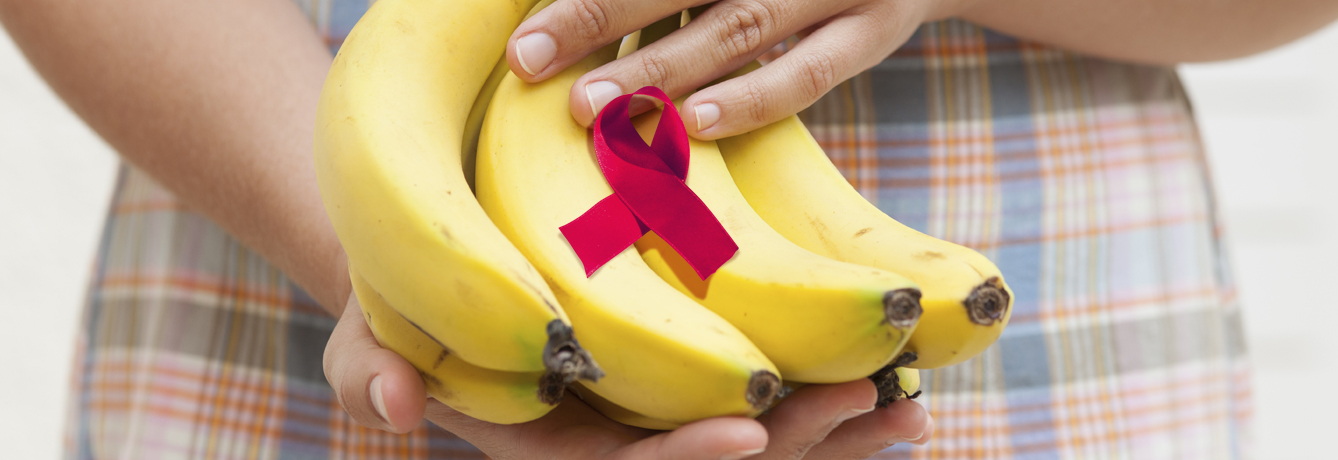For every two people receiving drugs to treat HIV infection, there are five new individuals becoming infected. While an effective AIDS vaccine remains a distant possibility, exciting new research suggests the beloved banana may offer a nearer term solution, as scientists zero in on one of its compounds that could help provide a topically applied physical barrier to block sexual transmission of HIV. Laboratory results from the University of Michigan found that a banana lectin (type of protein) called BanLec latches onto HIV molecules, preventing the virus from binding to other cells in the body.
BanLec proved just as powerful as two popular synthetic anti-HIV drugs in preventing infection. It’s possible the banana lectin could provide broader protection, reducing the risk of viral mutation and resistance. Moreover, such a naturally derived compound could prove much cheaper than synthetically derived chemical topical microbicides — an important factor considering that two-thirds of new HIV infections come from sub-Saharan Africa. In such developing regions, where protection for women and access to prophylactics are limited, a banana-based microbicide could potentially save millions of lives.
This study highlights one more way in which bananas could impact reproductive health. Previous research suggests 75% of women on hormonal birth control fall short on vitamin B6, amply provided by bananas. Other research linked higher intakes of potassium from sources like bananas with an increased likelihood of giving birth to a boy (vs. girl). Of course, bananas help boost overall health as well, providing nutrients that help enhance fat-burning, increase iron absorption and preserve muscle mass.
Published May 1, 2010



